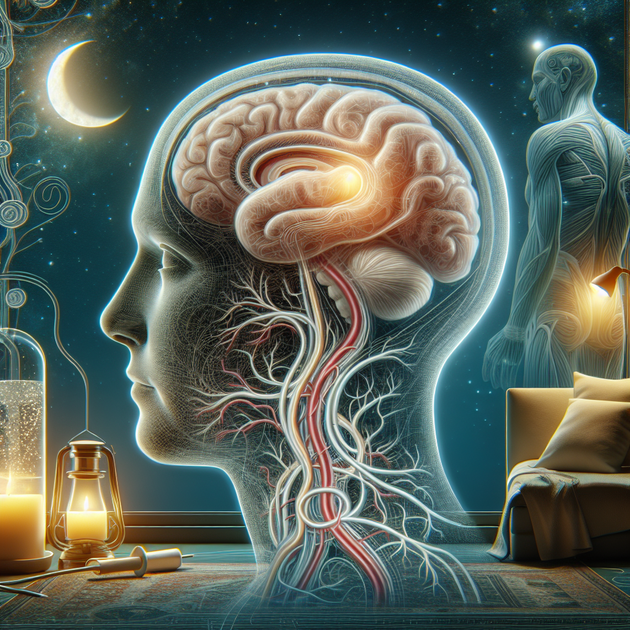What if the key to preventing dementia lies in how well your brain takes out its own trash? That’s exactly what researchers are starting to uncover. In a study tracking over 40,000 adults, scientists found that problems with the brain waste system—especially how it moves cerebrospinal fluid—could predict who might develop dementia years later. Let’s take a closer look at this surprising discovery and what it means for all of us.
Meet the Glymphatic System: Your Brain’s Cleaning Crew
Our bodies have built-in ways to stay clean and healthy—even our brains. Deep inside your head is a clever network called the glymphatic system. This system acts like a cleaning crew for your brain, helping wash away toxins and waste products that build up as we think, move, and live our daily lives.
The main tool for this “spring cleaning” is cerebrospinal fluid (CSF). CSF flows through special channels in the brain, picking up unwanted proteins and debris—think of it as a river sweeping away garbage after a festival. At night, while you sleep, this process kicks into high gear.
But what happens when that river slows down or gets blocked? Research suggests that when CSF can’t move freely through the glymphatic pathways, harmful substances can start piling up. Over time, this clutter may contribute to neurodegenerative diseases like Alzheimer’s and other forms of dementia.
Dementia and Impaired Fluid Movement: The Link Explained
The new study involving more than 40,000 adults found something big: people whose brains showed impaired movement of cerebrospinal fluid were much more likely to develop dementia later in life. This wasn’t just a small increase—it was a clear difference compared to those whose glymphatic systems worked smoothly.
Why does this matter? Dementia remains one of the most challenging diseases worldwide. If doctors can spot early warning signs based on how well someone’s brain waste system works, there might be new ways to prevent or delay disease before memory loss even starts.
According to Scientific American, scientists are especially interested in proteins like beta-amyloid. When these aren’t cleared efficiently by CSF movement at night, they can clump together and damage brain cells—a process closely tied to Alzheimer’s disease.
Why Most People Haven’t Heard About This Yet
The glymphatic system is a fairly recent discovery (first described around 2012), so it hasn’t gotten as much attention as topics like cholesterol or heart health. But as more research pours in linking it to conditions like dementia and Parkinson’s, experts are starting to pay closer attention.
Here are some quick facts about the glymphatic system and its role in brain health:
- Cleansing action: The glymphatic system removes metabolic waste from brain tissue.
- Most active during sleep: Deep sleep triggers more powerful waves of CSF.
- Trouble leads to trouble: Impaired flow has been linked not just to dementia but also strokes and traumatic brain injuries.
- Still being studied: Scientists are working on ways to measure glymphatic function using imaging scans.
A Personal Story: When Sleep Made All the Difference
A friend once told me about her grandmother who started forgetting little things—a birthday here or a grocery list there. At first it was easy to brush off as normal aging. But after a few sleepless months due to chronic pain, her memory issues suddenly got worse. Doctors now believe poor sleep may have slowed her glymphatic function—giving her brain less time each night to clear out toxins. It made everyone wonder: could better sleep have kept her sharper for longer?
Can You Boost Your Brain’s Waste System?
While much about the glymphatic system is still being studied, some early research suggests there are simple steps you can take for better brain health. Here are a few tips supported by experts:
- Prioritize sleep: Aim for 7-9 hours each night; deep sleep is when your brain “cleans house.”
- Stay hydrated: Good hydration keeps CSF flowing smoothly.
- Avoid heavy alcohol use: Too much alcohol can disrupt both sleep quality and fluid movement.
- Mild exercise: Activity increases overall circulation—including in your brain.
- Lying on your side: Some studies suggest side-sleeping may help CSF drain more efficiently.
Researchers hope that soon we’ll have tools that let doctors spot early signs of trouble in our brains’ cleaning systems—potentially helping millions stay sharp as they age.
So here’s something worth pondering: If taking care of our bodies helps prevent heart disease, could caring for our brains’ waste systems be just as important for fighting dementia? What would you change about your routine if it meant protecting your mind decades down the line?

Leave a Reply